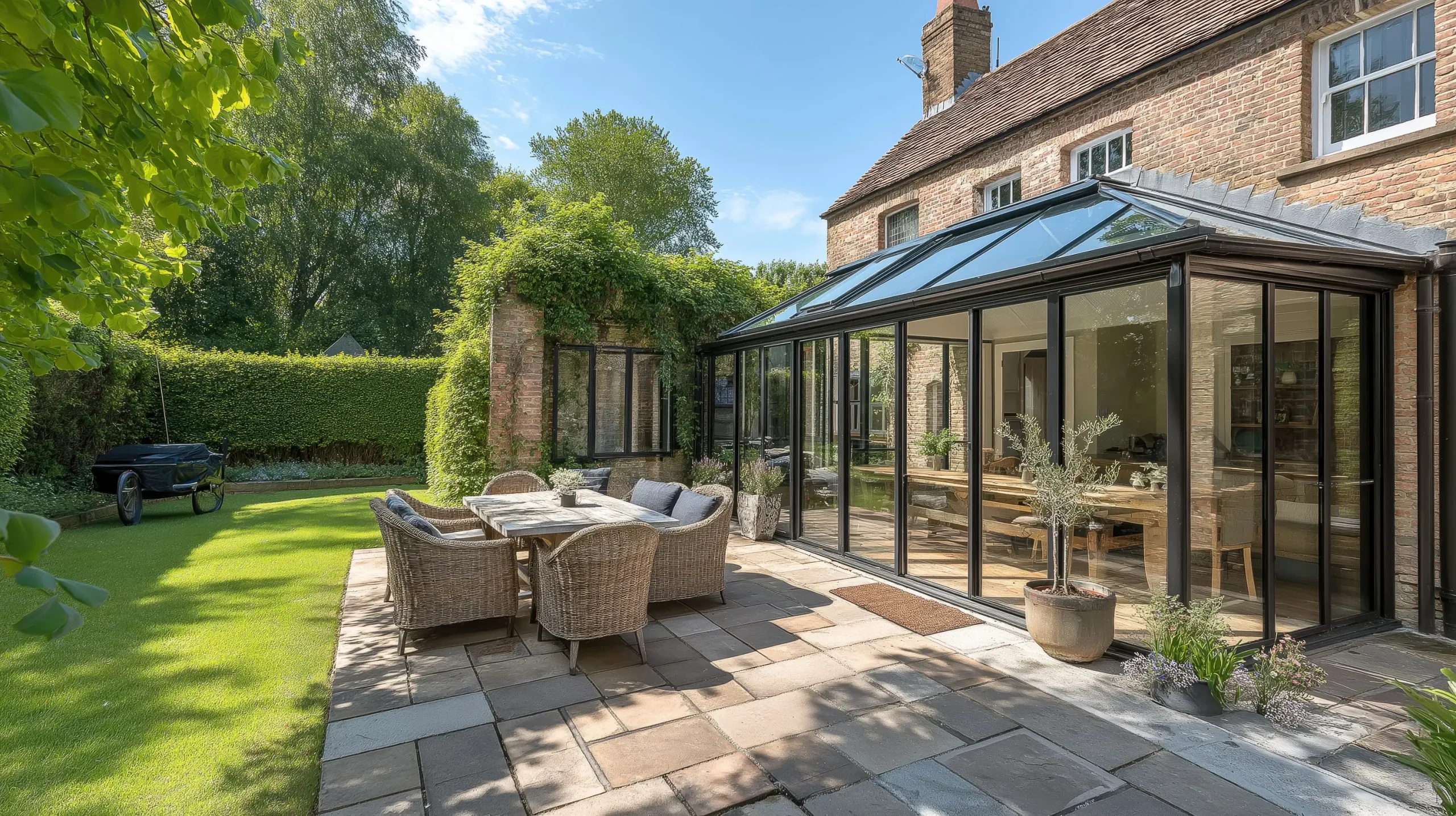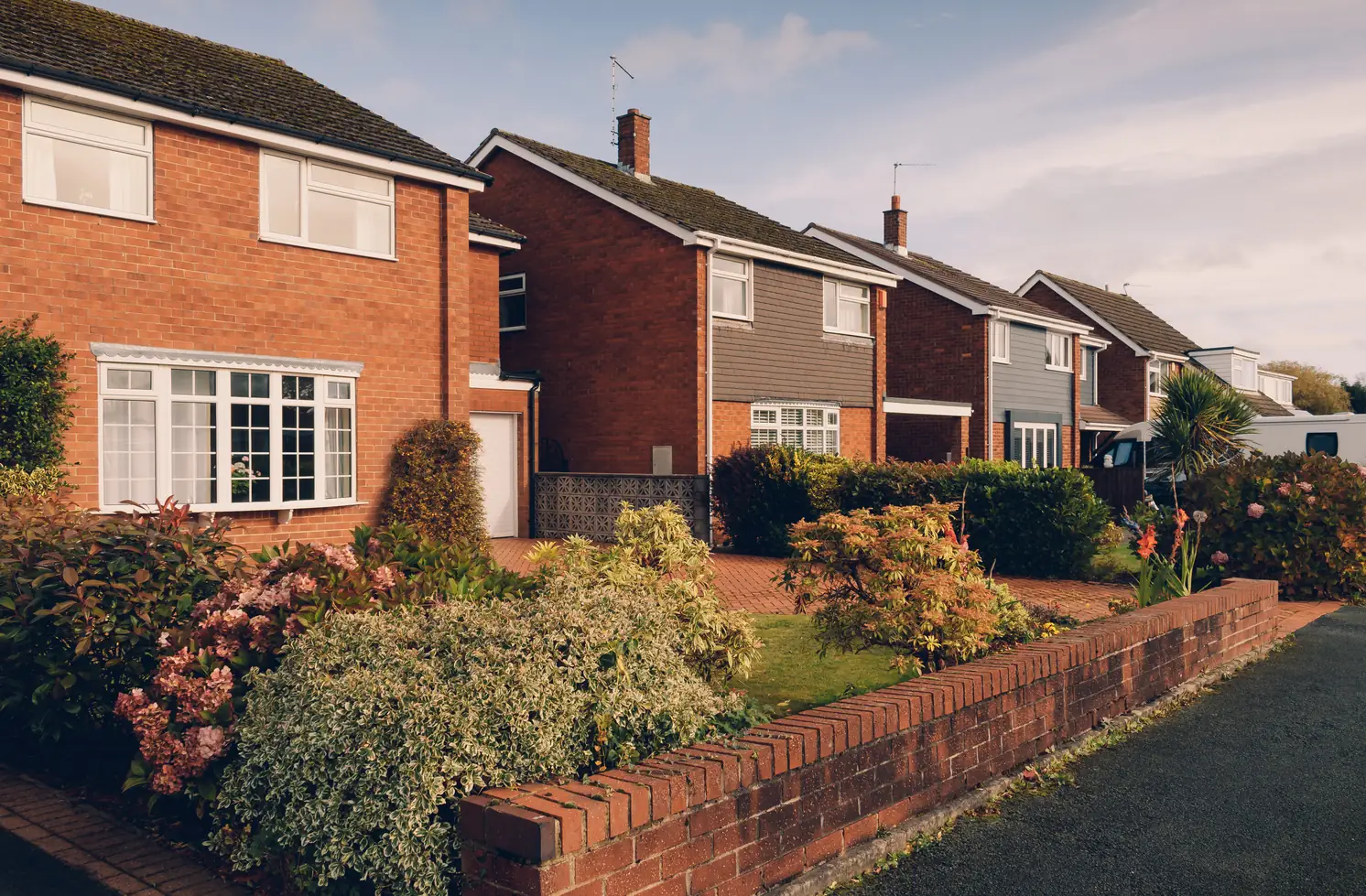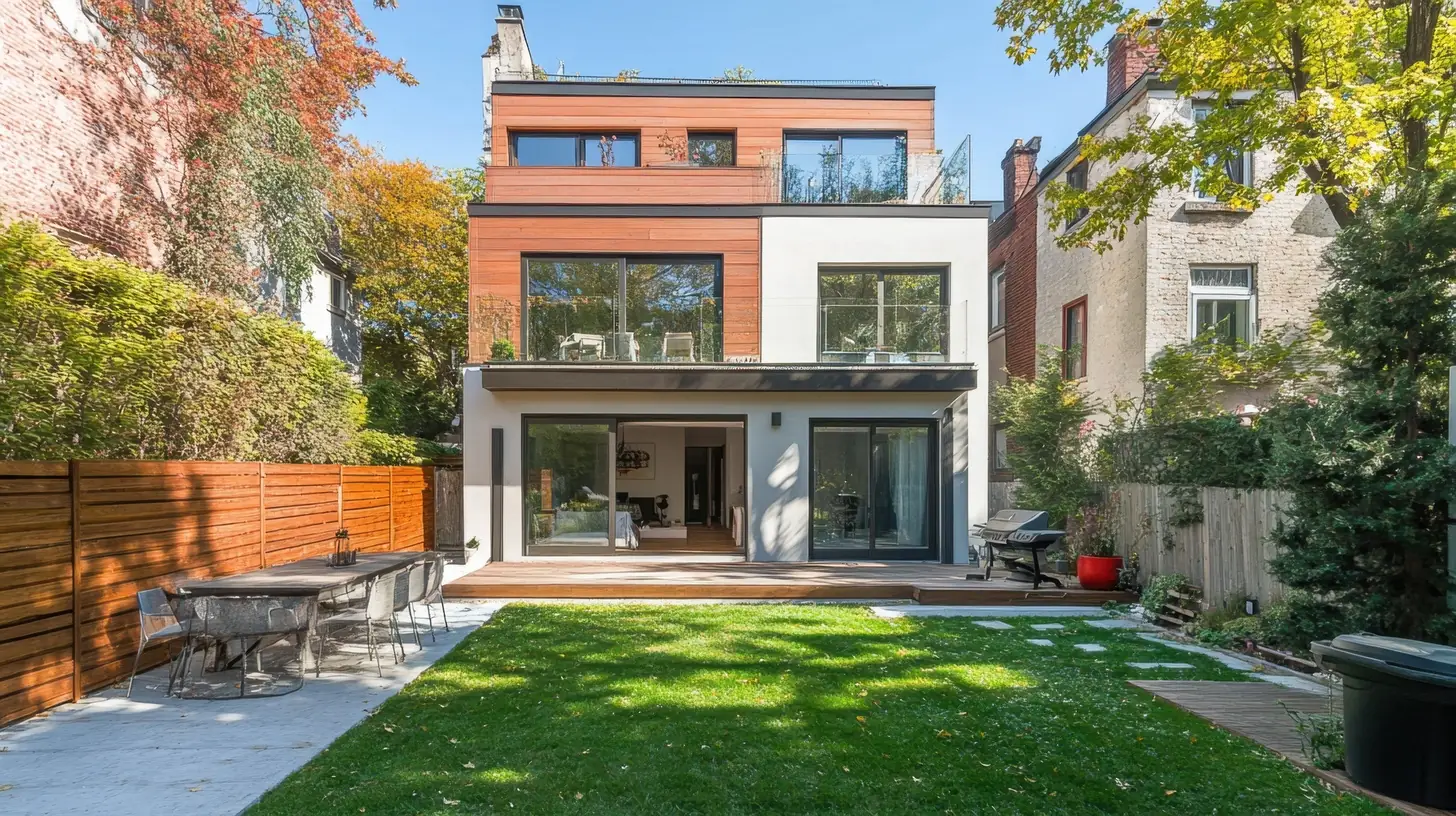MENU
Categories
Category:
Blog
Do Neighbour Objections Affect Planning Applications?
Key Highlights
- Neighbour objections are a normal part of planning applications, but not all of them influence the final decision.
- The planning authority only considers valid reasons, known as “material considerations,” such as loss of privacy or impact on local character.
- Emotional objections, like personal dislike for a project or concerns about property values, are typically disregarded.
- The number of objections is less important than the quality and relevance of the arguments presented.
- Both applicants and objectors can take effective steps by focusing on technical facts and planning policies.
Introduction

Are you worried about a neighbour’s development plans or facing objections to your own? You’re not alone. Navigating the planning process can feel complex, especially when neighbour objections are involved. These comments are a common and expected part of any application, but their impact can vary greatly. Understanding how the planning committee views these objections is crucial. This guide will walk you through what makes an objection count and how to handle them, whether you are applying or objecting.
Understanding Planning Applications in the UK

Navigating the planning process in the UK involves understanding various aspects of how applications are assessed. From the initial submission to the final planning decision, the involvement of the local planning authority is crucial, as they coordinate consultations and evaluate the project’s impact on local character. A planning officer and their case officer play key roles in considering both the application and any objections raised. Ultimately, how well an application aligns with local planning policies greatly influences its chance of success and maintains the community’s quality of life.
The Planning Application Process Explained

The planning application process involves several steps, beginning with the submission by the applicant to the local planning authority. Once the application is lodged, it enters a statutory consultation period where neighbors and other stakeholders have the chance to raise objections. Planning officers review the submission against planning policies, assessing factors like the local character and potential environmental impact. The case officer then prepares a report for the planning committee, who ultimately makes the planning decision, balancing the needs of the community with the applicant’s intentions.
Key Players Involved — Council, Applicants, and Neighbours

Understanding the key players in the planning process is essential for everyone involved. The council, often represented by planning officers and their committees, assesses applications based on local and national policies. Applicants aim to enhance their properties but must also consider the impact on neighbors. Neighbors, in return, have a vital role. Their objections can stem from emotional responses or legitimate concerns about privacy, light, and community character. Each party’s perspective influences the planning authority’s evaluation and the overall success of the application process.
The Role of Neighbour Objections in Planning Decisions

Neighbour objections play a pivotal role in shaping planning decisions, reflecting the community’s interests and concerns. While emotional objections, such as personal dislike or perceptions of aesthetics, are common, they often lack substantial weight in the deliberation process. Technical objections, such as loss of light or privacy, and policy objections, such as conflicts with planning policies or SPDs, carry much more significance. These types of objections can require formal responses or amendments to demonstrate compliance with planning rules.
How Local Authorities Consider Objections
Local authorities weigh objections carefully, distinguishing between emotional responses and more substantial technical or policy concerns. Emotional objections, such as personal dislike or aesthetics, often lack the necessary merit to influence planning decisions. In contrast, technical objections regarding rights to light or privacy can hold significant weight and may prompt a formal response. Policy objections, especially those highlighting conflicts with local or national planning policies or Supplementary Planning Documents (SPDs), are taken very seriously. The planning officer and planning committee assess these objections during their evaluation to ensure alignment with planning objectives and community standards.
Circumstances Where Objections Matter Most
Emotional objections, while common, often lack the substance to sway planning decisions. However, technical and policy objections hold significant weight. Technical objections address specific impacts such as loss of light or privacy, and often require a detailed response to counteract. Policy objections focus on compliance with established planning frameworks, including local and national policies as well as SPDs. In situations where these objections highlight valid conflicts, they can greatly influence the planning authority’s evaluation process and subsequent decision.
Types of Neighbour Objections

Neighbour objections typically fall into three main categories:
1. Emotional Objections
These often stem from personal feelings, such as aesthetic distaste or neighbourly disputes. While these concerns reflect individual perspectives, they usually lack the technical substantiation needed to influence planning decisions significantly.
2. Technical Objections
These are grounded in factual matters, like how a proposal might encroach on daylight or compromise personal privacy. Examples include: loss of privacy, right to light issues, or highway safety concerns.
3. Policy Objections
These arise when applications clash with established planning policy or guidance. Examples include:
- Conflict with local or national planning policy.
- Failure to comply with relevant Supplementary Planning Documents (SPDs).
- Proposals that contradict conservation, housing, or sustainability policies.
Policy objections are among the strongest because they reference the statutory planning framework that decision-makers must follow.
Valid vs Invalid Grounds for Objection
Certain grounds for objection in the planning process are seen as valid while others may be dismissed as invalid. Emotional objections, like personal dislike for a neighbor or whether a structure is considered unattractive, typically lack the necessary weight to influence a planning decision. In contrast, technical objections that cite planning policies and highlight concerns such as loss of light or privacy present a stronger case. Similarly, policy objections related to non-compliance with local or national planning guidelines can significantly impact the outcome of the application.
Common Valid Planning Objections
Common valid planning objections often fall into two primary categories: technical and policy objections. Technical objections focus on measurable impacts such as loss of light, privacy, or amenity. When a proposal may obstruct a neighbor’s right to light or diminish local character, it can be a significant basis for objection. On the other hand, policy objections arise when developments conflict with local or national planning policies or fail to comply with relevant supplementary planning documents (SPDs). Both types can play a crucial role in the planning decision process.
Objections That Planners Will Ignore
Emotional objections often lack the substance needed to influence planning decisions. Complaints about aesthetics, such as “it’s ugly,” or personal feelings towards a neighbor usually don’t hold weight within the planning process. While these sentiments are valid for individuals, they aren’t categorized as material considerations by planners. Technical and policy objections are far more impactful. Concerns that reference loss of light, privacy, or conflicts with local planning policies are taken seriously, while vague, emotional appeals tend to be disregarded. This distinction emphasizes the importance of well-founded objections in shaping planning outcomes.
Legal Policies and Guidelines Impacting Objections

Various legal policies and guidelines can significantly influence objections to planning applications. Local and national planning policies lay the groundwork for which concerns are deemed valid. For instance, conflicts with the established local character or specific statutory guidelines can carry considerable weight in the planning process. Additionally, supplementary planning documents (SPDs) provide crucial details that help define acceptable developments. A clear understanding of these frameworks not only aids in forming legitimate objections but also guides applicants in navigating the complex landscape of the planning system.
National and Local Planning Policies
Planning applications must align with both national and local planning policies to be successful. National policies set broad parameters, ensuring that developments consider the impact on the environment and communities. Local planning authorities, meanwhile, adapt these guidelines to reflect the unique character of their areas. For instance, policies could address concerns like loss of privacy or the value of properties in a neighborhood. Compliance with these frameworks is crucial, as objections based on deviation from policies can carry significant weight during the decision-making process.
Relevant Supplementary Planning Documents (SPDs)
Relevant supplementary planning documents (SPDs) provide crucial guidelines that shape how local planning authorities assess planning applications. These documents often detail specific local policies, design standards, and environmental considerations, helping to ensure that proposals align with the character of the area. They serve as a bridge between national planning policies and localized needs, guiding applicants and objectors alike. Understanding these SPDs can significantly impact both the quality of objections raised and the overall outcome of the planning process, making them indispensable for effective community engagement.
Making an Effective Objection as a Neighbour

Crafting a successful objection as a neighbor requires clarity and specific focus. Emotional objections, such as personal dislike or aesthetic preferences, often lack the weight needed to significantly influence planning decisions. Instead, consider framing your concerns around technical and policy issues that align with planning policies. Highlight any significant harm to your property rights, such as loss of light or privacy, and reference relevant Supplementary Planning Documents (SPDs) or local policies that the application may violate. This approach not only strengthens your objection but also aids the planning authority in understanding your perspective.
Steps for Submitting a Formal Planning Objection
Submitting a formal planning objection involves several straightforward steps. Start by gathering information about the planning Applications and identifying the reasons for your objection, focusing on valid grounds such as technical or policy issues. Next, draft a clear and concise letter outlining your concerns, backing up your points with relevant facts. Ensure your objection reaches the local planning authority within the statutory consultation period. Finally, keep a copy of your letter for your records and be prepared to engage with planning officers or the planning committee if necessary.
Tips for Building a Strong, Fact-Based Case
Building a compelling case against a planning objection requires thorough preparation. Start by gathering technical data related to the objection, such as evidence of compliance with local planning policies or relevant supplementary planning documents (SPDs). Focus on factual information that addresses the specific concerns raised, such as potential loss of privacy or light. Utilize objective statements supported by documentation, like property surveys or expert analyses. This approach strengthens your position and signals to the planning authority that you’re taking the objection seriously. Presenting a well-structured argument can enhance the chances of achieving a favorable planning decision.
Responding to Objections on Your Own Planning Application

Addressing objections on your planning application is an essential part of the process. Recognizing that not all objections have equal weight, it’s crucial to distinguish emotional responses from valid technical or policy-based concerns. Formal responses to valid objections should be backed by technical facts, ensuring that issues like loss of light or privacy are addressed thoughtfully. Moreover, aligning your proposal with local planning policies and relevant supplementary planning documents can help mitigate objections, ultimately strengthening your case and enhancing community acceptance of your project.
Addressing Valid Concerns Raised by Neighbours
Responding to legitimate concerns from neighbors is essential in the planning application process. Valid objections—grounded in technical issues like loss of light or privacy—deserve thoughtful consideration. An effective approach involves crafting a well-reasoned objection letter that addresses these points directly, using relevant planning policies to support your case. Identifying conflicts with local regulations or the character of the area can further strengthen your response. Engaging with neighbors and planning officers can lead to constructive dialogue, which may alleviate concerns while improving your project.
Strategies for Mitigating Potential Objections
Responding effectively to neighbour objections involves clear communication and factual representation. Begin by thoroughly understanding the concerns raised, focusing on both technical and policy-based objections. Prepare a detailed response that addresses each point, emphasizing how your proposal aligns with local planning policies and the overall value it brings to the community. Additionally, collaborate with an experienced planning consultant to reinforce your arguments with professional advice. Ensuring that your planning application respects local character and minimizes potential nuisances can bolster your case against objections and demonstrate genuine consideration for your neighbors’ needs.
What Happens After Neighbour Objections Are Submitted?

After neighbour objections are submitted, the planning authority evaluates them against relevant policies and guidelines. They assess the validity of concerns raised, consider potential impacts on the community, and determine whether to approve or reject the application based on these factors.
Planning Authority’s Evaluation Process
During the evaluation of a planning application, the planning authority carefully reviews all submitted objections. Each concern is assessed for its relevance and alignment with planning policies. Technical objections, which cite specific impacts like loss of light or privacy, are prioritized as they relate directly to the planning process. Emotional objections, while valid as personal sentiments, often lack the weight needed to influence a planning decision. Ultimately, the planning officer draws upon professional advice and material considerations to shape the final outcome for the application.
Possible Outcomes and Next Steps for All Parties
After objections are submitted, the planning authority reviews all comments and evaluates their validity against local planning policies and material considerations. Each party—applicants, neighbours, and councillors—will have the opportunity to engage in discussions throughout the process. Should significant harm be identified regarding loss of privacy or environmental impact, amendments to the application may be necessary. Ultimately, the planning committee will reach a decision, which could range from approval with conditions to outright refusal. Following the decision, avenues for appeal may exist for those who feel their interests have not been adequately addressed.
Conclusion
In summary, while neighbour objections are a routine part of the planning application process, not all objections hold equal weight. Emotional objections often stem from personal biases and do not significantly impact decisions. Technical objections and policy objections, however, are based on factual or policy grounds and can lead to real consequences. Understanding the nuances of these objections is essential for both applicants and neighbours alike. As you navigate this complex landscape, remember that addressing valid concerns and building a strong case rooted in facts can enhance the planning process for everyone involved.
Frequently Asked Questions

Does the number of neighbour objections affect planning outcomes?
Yes, the number of neighbour objections can significantly impact planning outcomes. Local authorities evaluate not just the quantity but also the substance of objections. A large number of valid concerns may lead to reconsideration or changes in the proposed plans.
Can I appeal if my planning application is refused because of neighbour objections?
Yes, you can appeal a refused planning application due to neighbour objections. However, your appeal must demonstrate that valid concerns were not adequately addressed or that the refusal was inconsistent with planning policies. Seek professional advice to strengthen your case during the appeal process.
How can I object to my neighbour’s planning application politely and effectively?
To object politely and effectively, begin by researching the application details. Draft a respectful letter outlining your concerns clearly, focusing on factual evidence. Engage in constructive dialogue with your neighbour if possible, and ensure your objection aligns with valid planning grounds to increase its impact.




